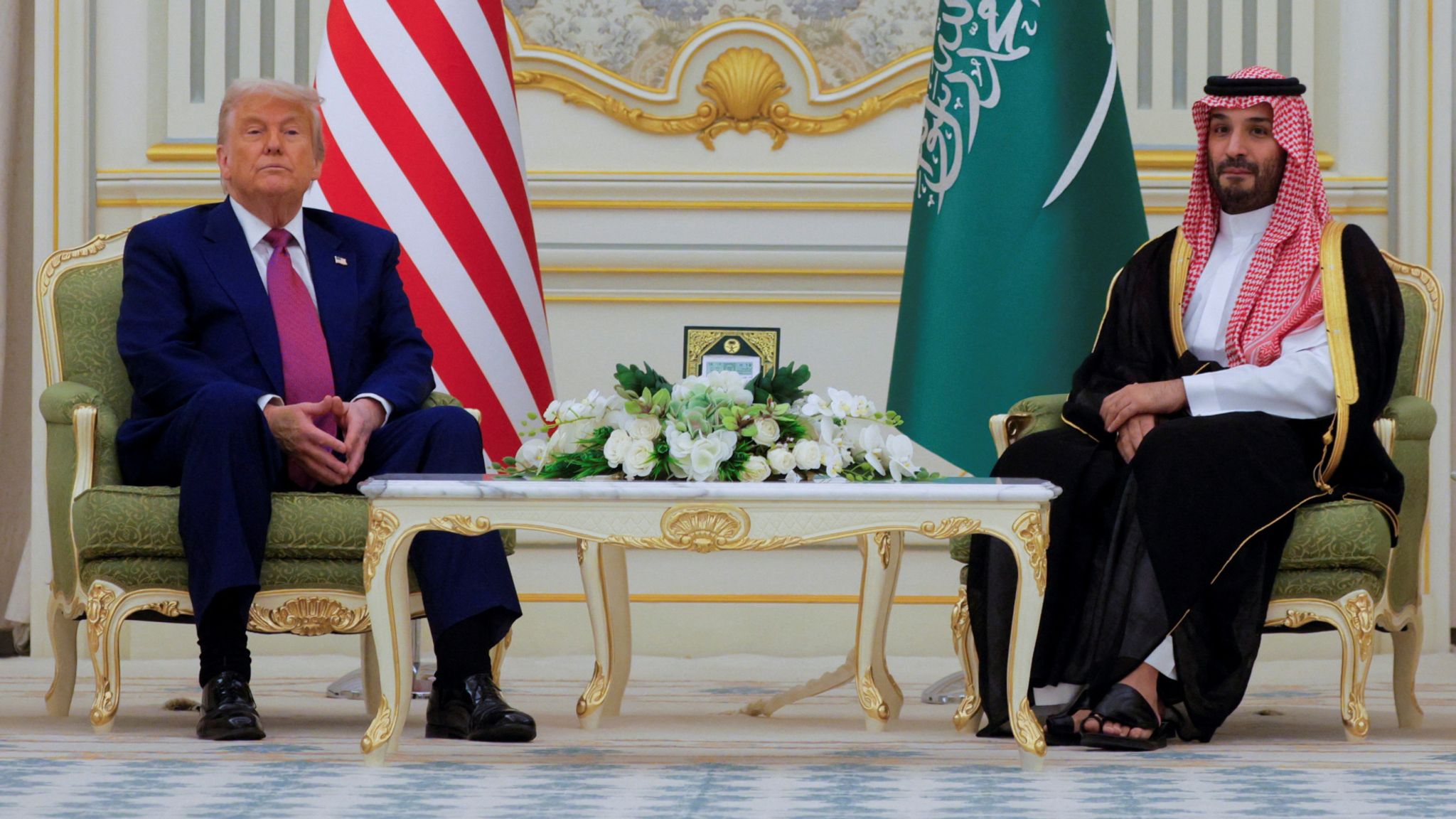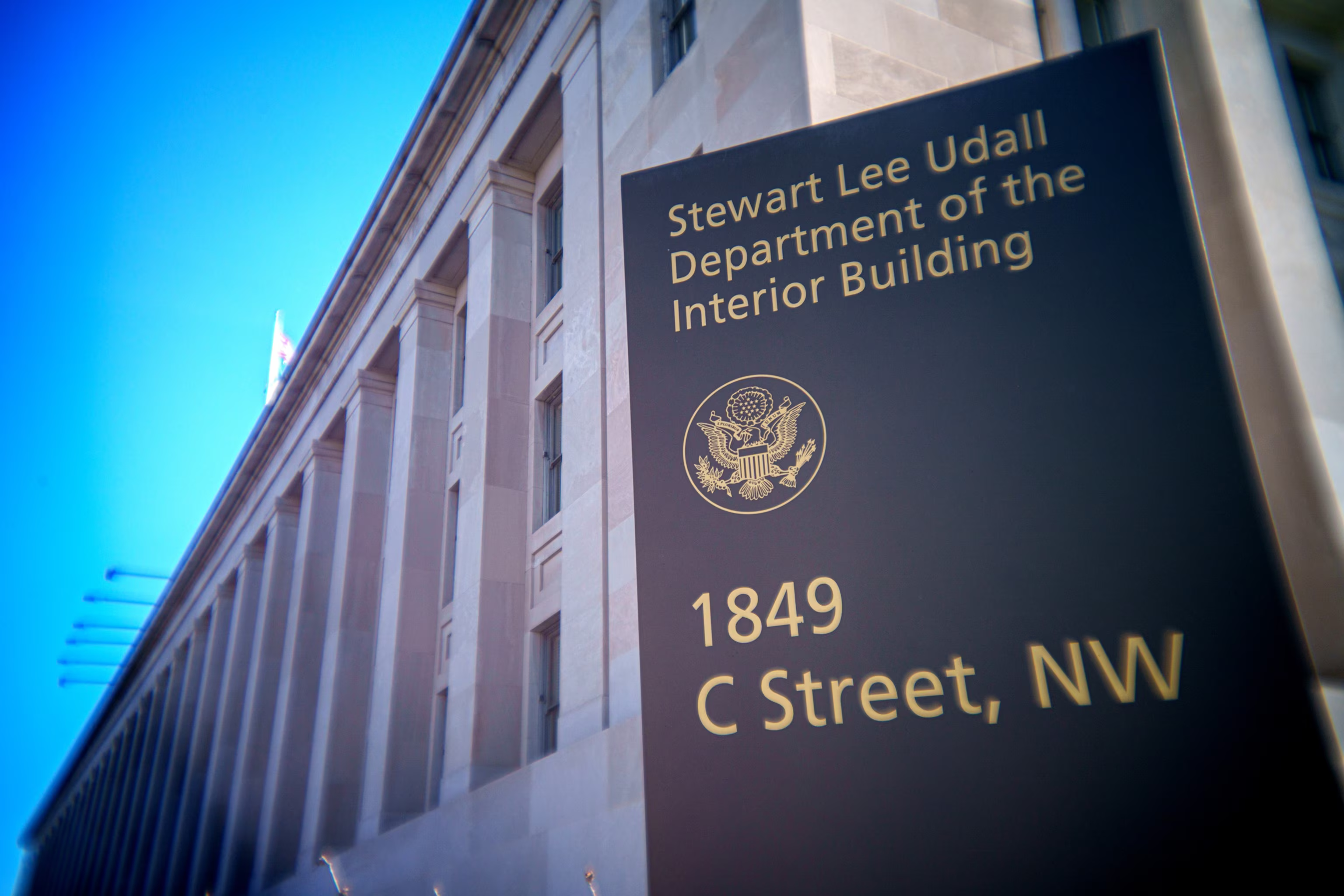Ever wondered what happens when global leaders meet, beyond the fancy dinners and photo ops? Well, sometimes, it involves signing checks with more zeros than you can count and discussing the future of entire regions. Case in point: President Trump’s recent trip to Saudi Arabia, a whirlwind of diplomacy, deal-making, and maybe a little bit of showmanship. Forget the red carpet; this was about rolling out the greenbacks, potentially ushering in what the White House called a “new golden era of partnership.”
The $600 Billion Handshake
Let’s talk numbers because, let’s face it, money talks, especially in international relations. The headline grabber was a whopping $600 billion investment commitment from Saudi Arabia into the U.S. economy. Think of it like a super-sized down payment on a future partnership. This isn’t just pocket change; it includes massive projects like $20 billion for AI data centers from DataVolt and $80 billion from tech giants like Google, Salesforce, Uber, and Oracle spread across various ventures. Plus, a Saudi healthcare firm is dropping $5.8 billion, including building a high-capacity IV fluid plant in Michigan. This kind of capital injection is designed to boost key sectors and create jobs, acting like a powerful engine for economic growth on both sides. It’s a technical ballet of capital flows aimed at tangible outcomes.
Diplomacy with a Different Flavor
Beyond the balance sheets, diplomacy was on the menu, served with a distinct flavor. President Trump announced the U.S. would cease sanctions against Syria, framed as giving the nation “a chance at greatness.” This move, alongside efforts to strengthen ties with Saudi Arabia, signals a focus on pragmatic engagement. It’s a style that prioritizes deals and potential future prosperity, a bit like a business negotiation where the focus is on closing the deal and moving forward, rather than getting bogged down in past grievances or internal affairs of other nations.
Tech Titans and Investment Pitches
Riyadh wasn’t just for politicians. The event was a magnet for American business leaders, from Elon Musk and Sam Altman to CEOs from Amazon, Google, and Blackrock. Why the A-list turnout? Saudi Arabia’s Public Investment Fund is sitting on significant wealth, looking to fuel its Vision 2030 goals, which involve massive spending on technology, infrastructure, and diversification away from oil. These executives were there to pitch their companies as the perfect partners for this ambitious transformation. Imagine a global Shark Tank, but instead of a few million, the stakes are in the billions, and the sharks are sovereign wealth funds. It’s a crucial opportunity for American firms to expand their global footprint and tap into new markets.
A Focus on Pragmatic Progress
The president’s rhetoric highlighted a shift towards a more transactional approach to foreign policy. He spoke about focusing on pragmatic cooperation to drive progress, rather than judging the internal affairs or “sins” of foreign leaders. This perspective suggests that shared economic interests and strategic goals can be the primary drivers of international relationships. It’s like building a bridge based on mutual need and benefit, rather than trying to psychoanalyze the bridge builders on the other side.
The Abraham Accords and Regional Dynamics
While the focus was heavily on economic ties, regional security and diplomatic initiatives also came up. Trump expressed a wish for Saudi Arabia to join the Abraham Accords, the normalization agreements between Israel and several Arab nations brokered during his first term. However, the ongoing conflict in Gaza remains a significant hurdle, with Saudi Arabia reaffirming its support for a Palestinian state. This shows that even in a deal-focused environment, complex regional realities can present sticking points, reminding everyone that diplomacy is rarely a simple transaction.
More Than Just Business
This trip underscores the multifaceted nature of international relations, where economic partnerships, diplomatic strategies, and national interests are deeply intertwined. The scale of the investments discussed and the caliber of attendees highlight the strategic importance placed on this relationship by both the U.S. and Saudi Arabia. It’s a complex tapestry woven with threads of commerce, politics, and ambition, aiming to reshape regional dynamics and economic futures.
Contact us today through our website or WhatsApp to discover how we can help you achieve success in the United States. Together, we can turn dreams into reality.
Information source: nbcnews.com



